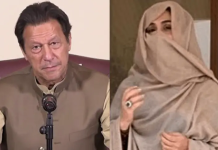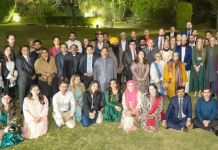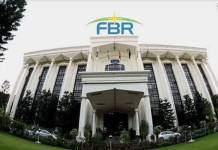ISLAMABAD, NOV 22 /DNA/ – Speaking at a well-attended seminar organized by the Institute of Regional Studies (IRS), and Kashmir Institute of International Relations (KIIR), Senator Mushahid Hussain Syed said that the recent exposé of India’s international criminal activities by the US and Canada bolsters Pakistan’s longstanding stance about India’s state terrorism. He cautioned that New Delhi’s increasing involvement in transnational terrorism activities not only undermines the stability of the region, but also poses a serious challenge to global peace and security. He noted that only two countries globally—India and Israel— employ targeted assassinations and killings as state-executed and state-sponsored policies beyond their borders. He suggested that Pakistan should leverage its membership in the Security Council to garner support for its longstanding position against India’s state-sponsored terrorism.
Ambassador Jauhar Saleem, President IRS, highlighted that Indian involvement in terrorism has been evident since 1947, arguing that New Delhi has systematically used its intelligence apparatus to infiltrate and coordinate with various non-state actors, primarily terrorist groups, that has led to widespread acts of terrorism in Pakistan, resulting in great loss of lives and damage to economy. Amb Saleem also pointed out the irony that, despite being victims of India’s state-sponsored, Pakistan faces blame from the international community and allegations of supporting terrorism by India. He expressed concern that under the Modi government, India’s network of terrorism had expanded to countries such as Canada, the U.S., and the U.K., threatening global peace and security, which calls for urgent and action from the international community.
Ambassador Zamir Akram, Advisor to Strategic Plans Division, highlighted the reasons for rather lukewarm international response to Pakistan’s concerns about terrorism originating from India. He noted that New Delhi has dominated the narrative on terrorism since 9/11, making its position more palatable to Western nations. Also, amid the growing US-China rivalry, India has emerged as a crucial US ally, enhancing its global standing. Amb Akram pointed out that this support was evident in the UN’s terrorism committee proceedings, where despite China and Pakistan’s efforts to list the Majeed Brigade as a terrorist group, the US, UK, France, and Switzerland have stalled the initiative by placing a technical hold. The episode highlights the double standards of the US and its Western allies in addressing terrorism and called for a more equitable response.
Dr. Farhan Mujahid Chak, Visiting Research Faculty at Georgetown University, Washington D.C., expressed concern that many social media users are unknowingly falling victim to Indian propaganda, which promotes Indian interests while undermining Pakistani narrative. Emphasising that it was imperative for Pakistan to combat the pervasive and relentless Indian propaganda, Dr. Chak urged increased awareness among the youth about Indian agenda aimed at undermining and eroding Pakistani identity. He also called for a stronger emphasis on promoting Pakistani culture and identity, both domestically and internationally.
Mr. Altaf Hussain Wani, Chairman KIIR, stated that Indian transnational terrorism was not a new phenomenon; for decades, hundreds of thousands of Kashmiris and Pakistanis had been killed due to Indian military operations, both covert and overt. He also noted that India’s excessive use of fake news and propaganda against the Kashmir struggle has severely undermined the genuine efforts of Kashmiris, both within the region and abroad. Mr. Wani also emphasized the importance of international collaboration to combat India’s rising transnational terrorism, which posed a significant challenge to global peace and security.

















